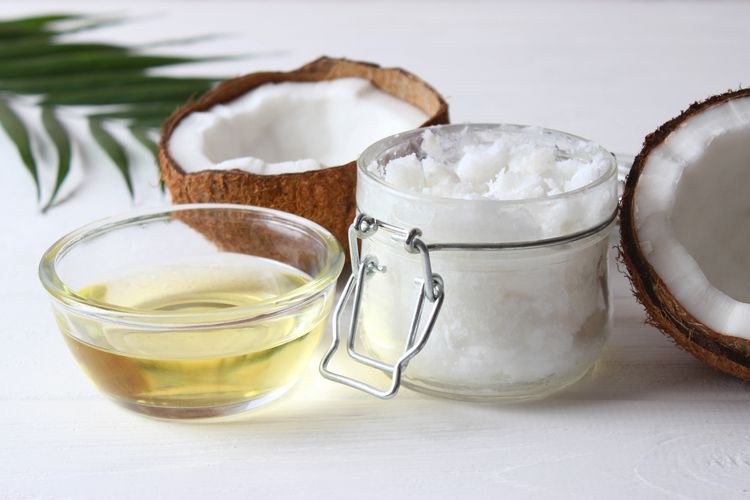
Coconut oil is a food ingredient that has grown in popularity as a kind of natural remedy and dietary supplement. People have claimed to experience a variety of health benefits when consuming coconut oil or applying it topically. It's not surprising that some dog owners have considered using coconut oil on their dogs for the health benefits it may provide.
Before embracing this dietary fad and using coconut oil on your dog, find out how safe it actually is and whether or not you can expect positive results.
Coconut oil is made by extracting the oils from coconuts. It can be used to prepare foods but can also be used as a dietary supplement. Coconut oil contains saturated fatty acids called medium-chain triglycerides. MCTs, like palm kernel oil and coconut oil, have different properties from long-chain triglycerides like olive oil, soybean oil, avocado oil, and fish oil. In theory, MCTs may be more easily digestible and a better source for quick energy than LCTs. MCTs may contain caprylic acid and capric acid, both of which have anti-fungal properties. They may also contain lauric acid, which has antibacterial, antiviral, and antifungal properties.
Any natural substance with supposed antibacterial, antifungal, and antiviral properties is likely to become popular with people looking for natural remedies. All of the hype makes coconut oil sound like a miracle food. However, it's essential for dog owners to understand that none of these claims are backed up by science. In truth, studies have been largely inconclusive regarding the purported benefits of coconut oil. Additionally, these studies have mainly been done on humans and not animals.
Some people believe that the MCTs found in coconut oil may aid in digestion, heal digestive disorders, and reduce inflammation. It is also possible that MCTs can help with brain energy and cognition in older dogs.
Some owners report that the topical use of coconut oil has improved skin conditions such as hot spots or itchy, dry skin. These owners used over-the-counter shampoos made with organic coconut oil and recipes for DIY paw balm to not only achieve these results, but to also help give their dog a shiny, glossy coat.
Other anecdotal evidence suggests that coconut oil may help with metabolic functions, aid in weight loss, and alleviate pain from arthritis as well as improving bone health.
Remember that anecdotes are not scientifically sound. Before you decide to add coconut oil to your dog's diet or apply it to the skin, be sure to consider potential risks as well. As always, your veterinarian is the best source of information regarding your dog's health. Do not begin using coconut oil on your dog before you consult your vet.
Despite the possible health benefits, coconut oil might not be healthy for your dog. Though not poisonous, it is a high-fat food that can cause complications in dogs with certain health conditions. In addition, dogs may gain weight on this fatty food, risking obesity and all the health issues that come along with it.
Before you follow advice from friends and random people who rave about the benefits of coconut oil, remember that their stories are not a substitute for scientific research that takes place in a controlled environment, among a large group of dogs, and is both repeatable and peer-reviewed.
As mentioned previously, consult your veterinarian before using coconut oil. Your vet knows your dog's medical history and physical condition, and can offer specific instructions and advice about how, if the vet deems it safe, to incorporate it into your dog's routine.
Topical use may be easily administered, but remember that your dog may lick it off the skin and ingest it anyway. Oral use should be done carefully, only giving your dog the amount recommended by your vet. Too much coconut oil can lead to vomiting, greasy diarrhea, weight gain, and other illnesses. In general, vets caution against increased fat in the diet for dogs with histories of pancreatitis and those prone to gaining weight. Other diseases and metabolic conditions can be exacerbated when using coconut oil.
If your vet gives you the go-ahead to use coconut oil topically or orally in your dog, be sure to get unrefined (also called "virgin") oil. Cold-pressed coconut oil is considered ideal.
Not all coconut oils taste the same. Some may have a stronger coconut flavor than others, so you may need to experiment with your dog to see what kind is preferred.

212 Hairless Cat Names For Your Beautifully Bald Feline
Discover the perfect name for your hairless cat with our list of over 200 creative and unique names. From quirky to classic, find a fitting choice for your beautifully bald feline companion.
8 Things Your Cat Loves
Just like humans, cats can have a long list of things they like. Find out what cats love so you can keep your cat happy and healthy.
How to Tell If a Kitten is a Boy or a Girl
If you're wondering whether your new kitten is a boy or a girl, here are three ways to help determine the sex of your cat.
8 Tips to Help Cats Enjoy Car Travel
Cats are creatures of habit, and they hate to travel. Learn tips to prepare them for travel in the car, whether going to the vet or on vacation.
Common Causes of Mucus in Dog Poop
Seeing mucus in your dog's poop can be concerning to a dog owner. Here are common causes and treatment of mucus in a dog's stool.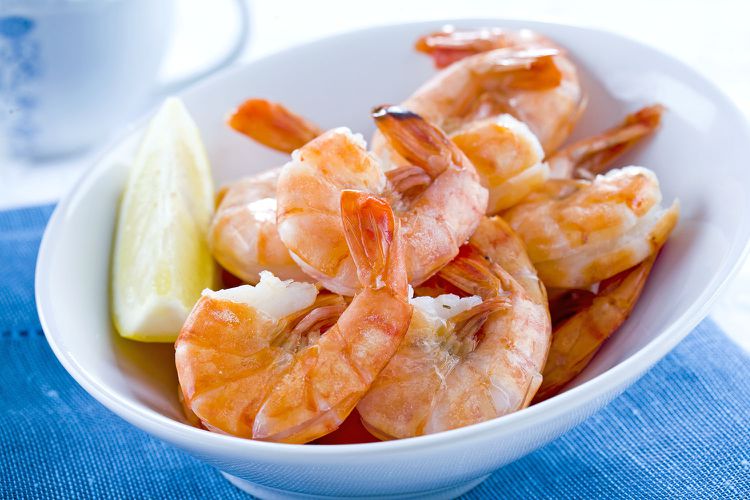
Is Shrimp Bad For Dogs?
Shrimp can be a healthy, nutritional food for people but can dogs eat them, too? What are the main concerns with feeding shrimp to your dog?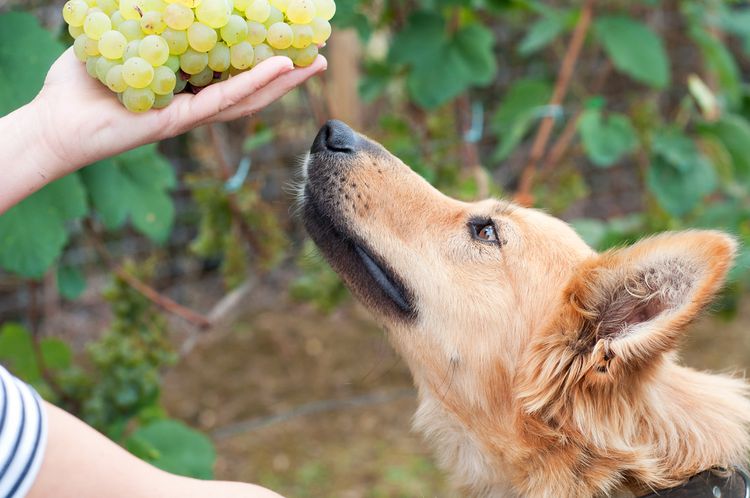
Can Dogs Eat Grapes?
Are grapes safe for dogs? Grapes and raisins can cause serious toxicity in dogs. Find out what to do if your dog eats grapes.
Maine Coon Cat: Breed Profile, Characteristics & Care
The Maine Coon cat is of the largest cat breeds in the world. These amiable, gentle cats make great companions. Learn about the Maine Coon cat breed's appearance, temperament, health, and care needs.
Selkirk Rex: Cat Breed Profile, Characteristics & Care
The Selkirk Rex is a charming cat with a tousled coat and a loving, laid-back personality. Learn about the Selkirk Rex breed.
How to Stop Your Cat From Chewing Electrical Cords
Cats are known to pounce and attack inanimate objects, like electrical cords. Learn how to prevent your cat from ambushing objects that may harm it.
What Do Cats Think About?
Have you ever wondered what cats think about? A number of studies have explored cat behavior and feline cognition, but there's still more to learn.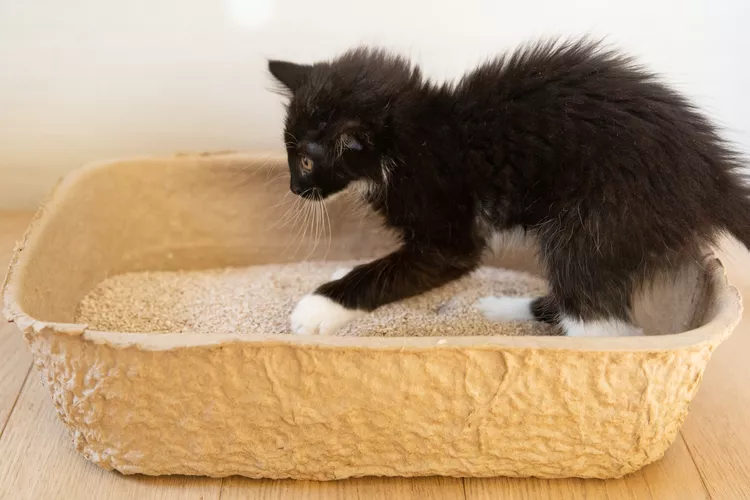
Training Your Kitten to Use the Litter Box
Bringing home a new kitten means they need to learn how to properly use a litter box. Discover how to successfully litter box train your kitten.
Why Do Cats Knead?
Kneading is a common behavior in cats of all ages. Learn why cats "make biscuits" and what it means for you, your cat, and all your blankets.
Dandie Dinmont Terrier: Dog Breed Characteristics & Care
Learn about the Dandie Dinmont Terrier, a silky dog breed with a signature puff of hair atop its head and a friendly, companionable personality.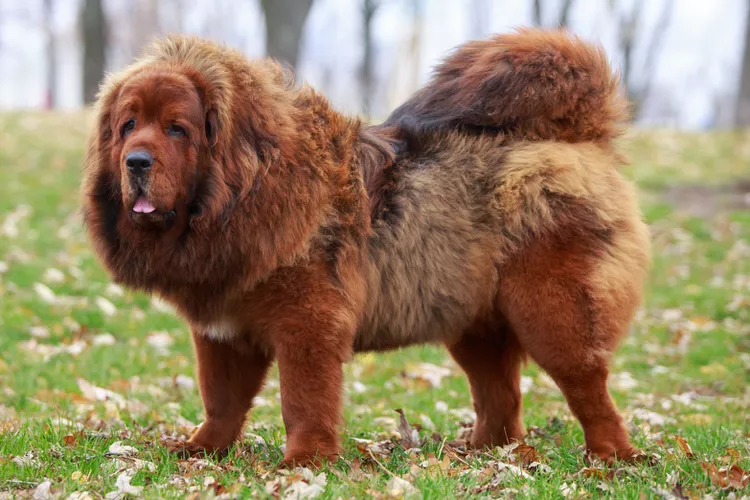
Tibetan Mastiff: Dog Breed Characteristics & Care
Learn about the Tibetan mastiff, an ancient guardian dog breed. This breed is known for their massive stature, flowing mane, and protective personality.
4 Reasons Why Your Dog Licks Their Butt
Butt-licking in dogs can be a part of normal grooming, but excessive butt-licking is not normal. Read about the most common reasons for this behavior.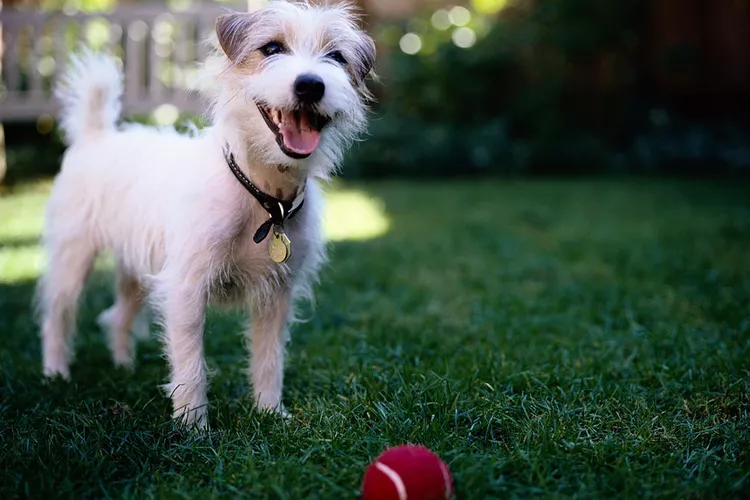
How to Teach Your Dog the "Leave It" Command
Training your dog the "leave it" command is a great way to instill self-control. Learn how to teach your dog to not pick things up from the ground.
How to Solve Your Dog's Fear of Car Rides
Is your dog scared of car rides? This fear of riding in cars is common. Learn why your dog is scared of car rides and how to help conquer this fear.
Can Dogs Get Depression? How to Help Your Sad Dog
Can dogs get depression? Learn about the signs of depression in dogs and find out how to help your sad dog.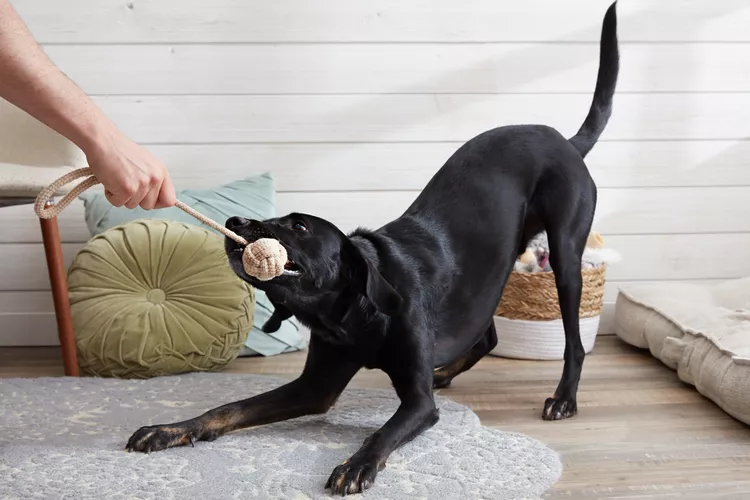
How to Play Tug of War With Your Dog
Many dogs love to play tug of war, and it's a healthy game that provides great exercise. Learn the best way to safely play tug of war with your dog.